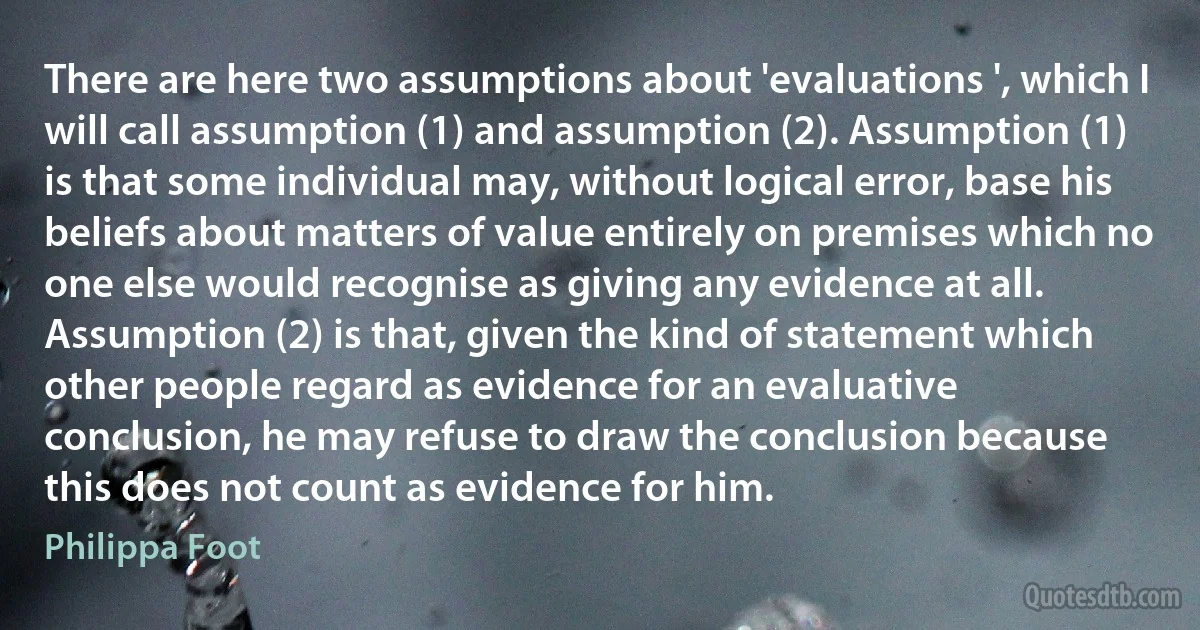
There are here two assumptions about 'evaluations ', which I will call assumption (1) and assumption (2). Assumption (1) is that some individual may, without logical error, base his beliefs about matters of value entirely on premises which no one else would recognise as giving any evidence at all. Assumption (2) is that, given the kind of statement which other people regard as evidence for an evaluative conclusion, he may refuse to draw the conclusion because this does not count as evidence for him.
Philippa FootRelated topics
assumption base call count draw error given giving kind people refuse valueRelated quotes
The nude gains its enduring value from the fact that it reconciles several contrary states. It takes the most sensual and immediately interesting object, the human body, and puts it out of reach of time and desire; it takes the most purely rational concept of which mankind is capable, mathematical order, and makes it a delight to the senses; and it takes the vague fears of the unknown and sweetens them by showing that the gods are like men and may be worshiped for their life-giving beauty rather than their death-dealing powers.

Kenneth Clark
If someone offends you, don't tell anyone about it except your elder, and you will be peaceful. Bow to everyone, paying no attention whether they respond to your bow or not. You must humble yourself before everyone and consider yourself the worst of all. If we have not committed the sins that others have, perhaps this is because we did not have the opportunity - the situation and circumstances were different. In each person there is something good and something bad; we usually see only the vices in people and we see nothing that is good.

Ambrose
God always was, and always is, and always will be. Or rather, God always Is. For Was and Will be are fragments of our time, and of changeable nature, but He is Eternal Being. And this is the Name that He gives to Himself when giving the Oracle to Moses in the Mount. For in Himself He sums up and contains all Being, having neither beginning in the past nor end in the future; like some great Sea of Being, limitless and unbounded, transcending all conception of time and nature, only adumbrated [intimated] by the mind, and that very dimly and scantily.

Gregory of Nazianzus
When you claim that the universe started in this particular way you are making a very profound statement. If I make a statement saying that the sun started in a certain way, I would immediately be asked for proof that the sun started in that way. I will have to go around gathering evidence of [[w:Solar systems}Solar systems]] forming, stars forming. I will have to produce evidence saying that this is how new solar systems are being formed, so the sun must have been formed in the same manner. That is a reasonably credible assumption.

Jayant Narlikar
Is the Minister aware that many people regard the present system of juryless trials at the Crumlin road court as outrageous? It would be appropriate for him to pay a visit to see the way in which trials take place, with no jury, where the decision is made solely on the word of a supergrass witness who stands to benefit from giving evidence, and where only the judge makes the decision. How much money has been paid in the last four years to supergrass witnesses for their evidence in such circumstances?

Jeremy Corbyn
